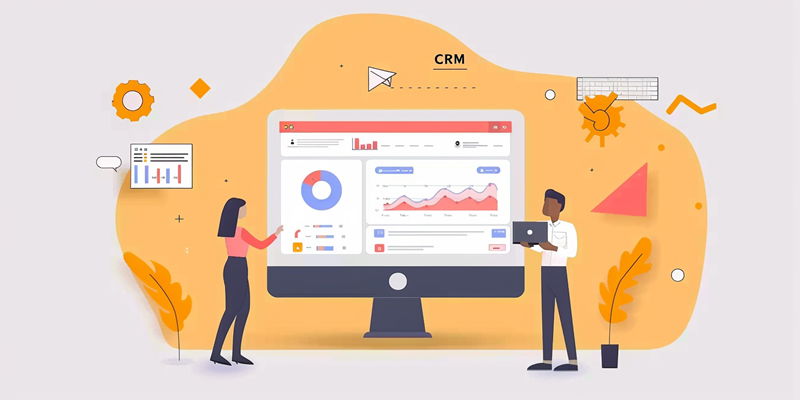In a world where business dynamics are evolving at a breakneck pace, maintaining robust customer relationships has become more vital than ever. Customer Relationship Management (CRM) emerges as an indispensable tool that enables businesses to harness the power of customer loyalty and propel growth. CRM is not just about managing relationships but more about fostering them—a methodology that champions customer retention as the linchpin of business prosperity. As we delve into the nuances of CRM strategies, we uncover the transformative effects that hone business operations, curate authentic connections, and catalyze customer loyalty into tangible business outcomes.
The Bedrock of Customer Loyalty
CRM software is the cornerstone upon which lasting customer loyalty is built. By analyzing extensive customer data, CRM creates personalized interactions, such as emails tailored to individual preferences or rewards tied to customer behaviors. This not only reinforces the customer’s sense of being valued but also establishes a continuous dialogue that extends far beyond simple transactional exchanges. The true essence of CRM lies in its capacity to nurture trust and foster emotional connections, turning one-time buyers into devoted brand advocates.
Strengthening Business-Customer Bonds
CRM is a game-changer in the way businesses communicate with their customers. The sophistication of modern CRM platforms facilitates multi-channel support, ensuring customers can interact with brands across various touchpoints—from social media to in-store visits. This seamless integration allows for a coherent and consistent dialogue, which is key to reinforcing the customer-business bond.
Moreover, the feedback gathered across these channels is centralized within the CRM system, providing a comprehensive view of customer sentiments. This holistic insight enables earnest responsiveness to customer inquiries and concerns, thereby laying the groundwork for a steadfast relationship that can withstand the tests of market competition and time.
CRM: The Engine for Improved Customer Experiences
With CRM systems at the helm, businesses are enabled to tailor customer experiences like never before. These platforms automate interactions based on individual customer data, ensuring each touchpoint is personalized and relevant. An exceptional customer experience stretches across various facets of a business, encompassing customer service, sales, marketing, and after-sales support—CRM is the thread that weaves these elements into a cohesive strategy.
Data-Driven Insights and Business Strategy
The lifeblood of any effective CRM system is the data that it captures and analyzes. This data spawns insights that form the bedrock of successful business strategies, identifying trends, gauging customer satisfaction, and flagging potential improvements. Thriving in today’s business climate demands a data-driven approach to understanding customer behaviors and finetuning interactions accordingly.
Maximizing Customer Retention and Revenue
Retention is the heartbeat of sustained revenue growth, and CRM is its pacemaker. By dissecting the intricacies of customer churn, CRM platforms empower businesses with the means to devise and implement effective retention strategies. The financial implications are substantial—preserving a solid customer base naturally lends itself to increased profitability.
Seamless Integration Across Business Functions
CRM transcends the realm of customer service to envelop an array of business operations—marketing, sales, inventory, and beyond. The synchronization provided by a fully integrated CRM system ensures that every department recognizes the customer’s position within the lifecycle spectrum. This kind of coordination not only streamlines internal processes but also presents a unified front to the customer, amplifying the efficiency and overall efficacy of the business.
Automation for Efficiency and Personalization
Efficiency is at the heart of CRM’s automation capabilities. With the mundane tasks handled automatically, businesses can allocate human resources towards engaging in meaningful customer interactions that require a personal touch. These nuanced exchanges are where relationships are forged and loyalty is cemented—personalization is the currency of connection in this automated world.
AI and the Future of CRM
The horizon of CRM is expansive, with artificial intelligence and machine learning poised to redefine the landscape. AI has the potential to undertake predictive analytics, drive chatbot interactions, and elevate personalization to new heights. These technological advancements promise to further enrich customer experiences, offering unparalleled anticipation and responsiveness to customer needs.

